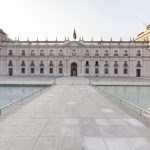- The proposed new Constitution establishes that water would be a “natural common” good not subject to ownership, for which administrative authorisations can be granted to allow its use. Such authorisations may not be the subject to private transactions.
- A specific constitutional statute is established for the protection of water, which includes a prioritization of its uses. This prioritization is not a novelty in our legal system, since it was incorporated in a similar way in the recent modification of the Water Code.
- New bodies are incorporated in relation to water management.
Special protection of waters
The constitutional proposal establishes that the State must protect water in all its states and phases, and its hydrological cycle. It also states that water is essential for life and for the exercise of human rights and the rights of Nature (in the draft, Nature is a subject of rights).
Regarding the use of this resource, the draft of the new Constitution establishes an order of preference: the human right to water, sanitation and the balance of ecosystems shall prevail. Other uses are left to the law, and the State must ensure the “reasonable use of water”. It is important to note that in the amendment to the Water Code that was enacted in April of this year, the prioritization of water use was already incorporated (giving priority to human consumption, domestic subsistence use and sanitation).
The human right to water and sanitation
In relation to the previous point, the draft states that the new Constitution guarantees all people the “right to sufficient, healthy, acceptable, affordable and accessible water and sanitation”, and that it is the duty of the State to guarantee these rights for both current and future generations. It also states that the State must ensure “the fulfilment of these rights for present and future generations” addressing the needs of people in their different contexts.
Water as a “natural common” not subject to ownership
The New Constitution Draft incorporates the category of “natural commons”, which is defined as “elements or components of Nature over which the State has a special duty of custody in order to ensure the rights of Nature and the interest of present and future generations”. It points out that some natural commons are not subject to ownership, and includes water among them.
New governmental bodies
The text of the constitutional proposal includes rules on the National Water Agency, stating that it will be an autonomous body, with legal personality and its own assets, and that it will be organised in a decentralised manner. Its purpose is to ensure the sustainable use of water for present and future generations, access to the human right to water and sanitation, and the conservation and preservation of its associated ecosystems.
Its powers include the granting, review, modification and revocation of administrative water authorisations, the supervision of the responsible and sustainable use of water and the application of the corresponding administrative sanctions. It also states that it may determine the quality of sanitation services.
It also includes rules on Basin Councils that would be responsible for water administration, without prejudice to the oversight and other powers of the National Water Agency and other competent institutions.
Water use authorisations
The constitutional proposal contains a rule stating that administrative authorisations for water use would be granted by the National Water Agency. Such authorisations (1) may not be the subject of private transactions (“incomerciable”), (2) would be granted according to the actual availability of water, and (3) would bind the holder to the use that justifies their granting.
Basins and Basin Councils
The draft new Constitution states that the State will ensure a participatory and decentralised water governance system, through integrated basin management, with the hydrographic basin as the minimum management unit.
The Basin Councils shall be responsible for water administration, without prejudice to the oversight and other powers of the National Water Agency and other competent institutions.
The law shall regulate the attributions, functioning and composition of the Councils. This shall consider, at least, the presence of the holders of water authorisations, civil society and territorial entities with a presence in the respective basin, ensuring that no single actor can achieve control on its own. The Councils may coordinate and associate when appropriate. In those cases where a Council is not constituted, the administration will be determined by the National Water Agency.
Water and zoning
In the constitutional proposal, the State and the territorial entities have the duty to organise and plan the national territory. In this context, it is proposed to use management units that take into account hydrographic basins.
Planning, land-use planning (zoning) and integrated watershed management would be the responsibility of the Autonomous Region. The Regional Assembly would be in charge of approving, modifying or rejecting the Regional Integrated Basin Management Plan.
Water and indigenous peoples and nations
The proposed new Constitution recognizes indigenous peoples and nations’ traditional use of waters located in indigenous territorial autonomies or indigenous territories. It is the duty of the State to guarantee their protection, integrity and supply, in accordance with the Constitution and the law.
Changes in relation to the current Constitution
Our Constitution only refers to water in Article 19 N°24, when it assures all persons the right of ownership of all kinds of tangible and intangible property. In its final paragraph, it states: “the rights of private individuals over water, recognised or constituted in accordance with the law, shall grant their holders ownership over them”.
Transition to a new regime?
For the moment it is not clear how the regime currently applicable, regulated by the Water Code, could survive with this new regulation. This will depend, in part, on the transitory norms to be incorporated into the constitutional proposal and on what may be established in the laws that will be enacted in the future for its implementation. For example, in relation to the National Water Agency, it is not yet clear how the transition will be from the General Water Directorate, the current body responsible for water issues, and this new body that is being proposed.
The proposed change from the current regime of water rights (national public use goods) to a regime of administrative authorisations that would allow the use of water, not subject of private transactions, prioritizing certain uses, certainly constitutes a fundamental change. In short, it is proposed to move from a regime that recognizes the right of ownership over water rights to a regime that does not admit the right of ownership.
The fact that administrative authorisations are not subject of private transactions means that they may not be the object of legal relations or, in other words, that agreements entered into in this respect would be null and void.
In this sense, it is still unclear what will be, in case the constitutional proposal is approved, the specific effect on the water rights currently in force, granted on the basis of the regulation of the Water Code (which was recently modified, thus changing the indefinite nature of these rights by establishing a regime of temporary 30-year concessions). This is particularly relevant, since one of the norms contained in the constitutional proposal, regarding natural commons not subject to ownership, states that “with respect to those natural common goods that are in the private domain, the State’s duty of custody implies the power to regulate their use and enjoyment” in order to preserve, conserve or restore them, as the case may be.
Although it is proposed to establish a prioritization of water uses at the constitutional level, the recent reform of the Water Code had already incorporated a prioritization in a similar sense (human right to access to drinking water and sanitation).
Finally, there are certain concepts incorporated in the constitutional proposal that, because they are not clearly defined, could be subject to interpretation, either at the jurisprudential or administrative level, as long as they are not specified more precisely (e.g. by law), such as what is meant by sanitation meeting the standard of being “acceptable, affordable and accessible” (qualifiers that are more subjective).
Contacts




